We asked leaders in Oregon’s business and political sectors what they make of 2023 — and what they hope to see in 2024. Here’s what they said.
The end of the year — and the beginning of a new one — is a time to reflect on the year that’s passed and the one ahead. We reached out to leaders in a variety of sectors — politics, business, economic development and organized labor — across the state and asked them what they were thinking about as 2023 drew to a close. What follows is a selection of their answers.
What was the high point of 2023 for you?
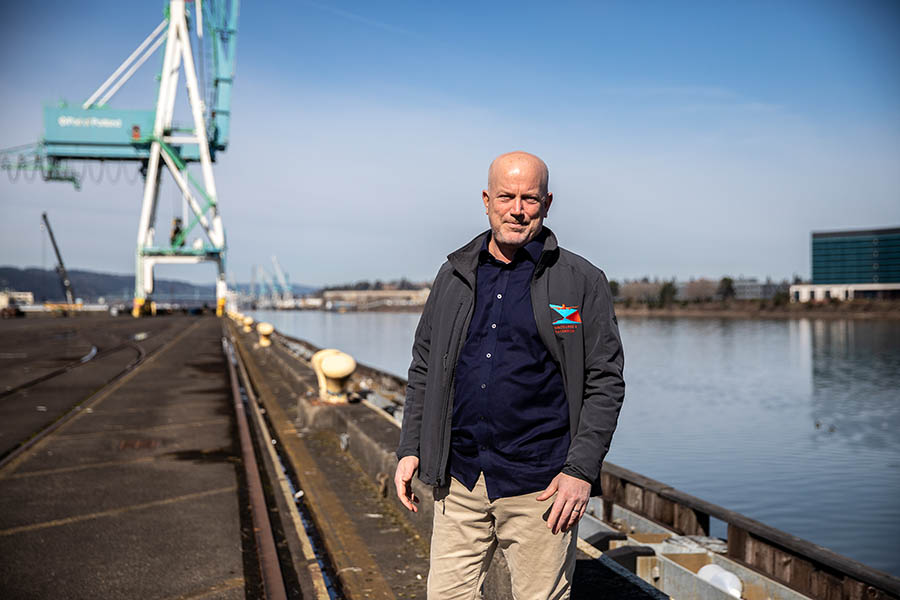
Curtis Robinhold
Executive director, Port of Portland
I’m extremely proud of the work the Port team completed
this last year to transform Terminal 2 into a site for innovation in mass
timber and housing manufacturing. We partnered with the TallWood Design Institute and the Oregon Mass Timber Coalition to secure a $10 million EDA Build Back Better grant to start T2’s campus transformation, and we worked with Hacienda CDC to kick-start the site’s reactivation as an innovation hub through their Mass Casitas pilot project. Seeing Oregon families step into brand-new Hacienda-
manufactured housing units built at T2 was a unique thrill.
Rep. Earl Blumenauer
D-Oregon’s 3rd District
The year 2023 was not anybody’s high and had lots of lows.
Rep. Jeff Helfrich
R-Hood River, House Minority Leader
The high point for me is always going to be how I’ve delivered for the people of House District 52, specifically bringing home funding for the Hood River-White Salmon Bridge. I’m also proud of wins in HB 2001, which started a needed conversation on addressing housing costs and homelessness in Oregon. I’m also humbled and honored to have been chosen Republican leader by my House colleagues. Oregon is hungry for real leadership and common-sense solutions after more than a decade of the majority party allowing our state to become a laboratory for the most destructive progressive experiments in American politics.
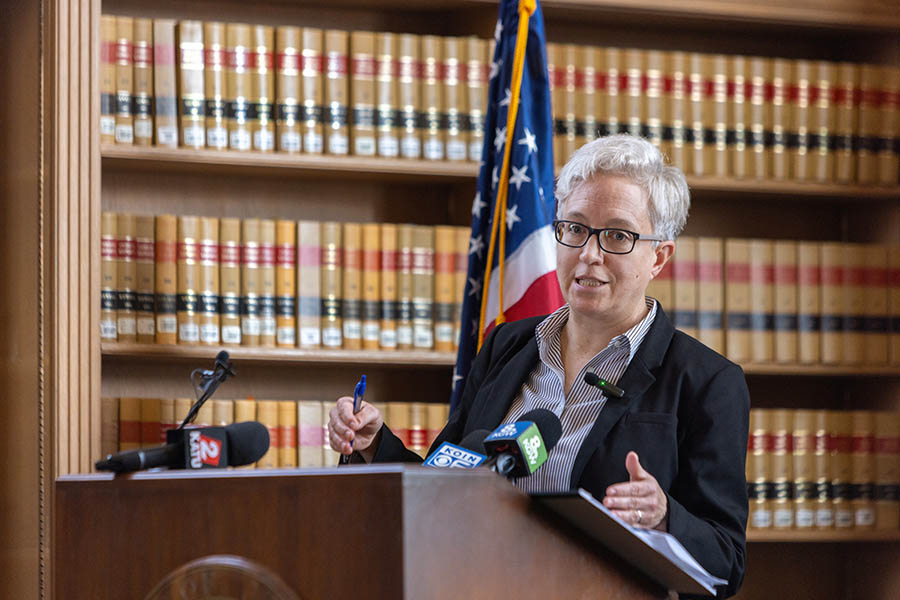
Gov. Tina Kotek
Meeting Oregonians in their home counties, all 36 of them. The First Lady and I are grateful for the hundreds of Oregonians who have invited us into their communities and shared with us their genuine reflections on what’s working and what’s not.
Jason Brandt
President & CEO, Oregon Restaurant & Lodging Association
Without question, the high point was getting further away from the grueling regulations endured by Oregon’s hospitality industry during the pandemic. The saga of COVID was nothing less than an explosion of disruptions and uncertainty. Moving beyond those challenges and reclaiming a sense of normalcy in our industry remains our focus. And there is plenty left to do in support of our restaurants and hotels as they work to sustain their operations and the employment opportunities they provide in a post-COVID world.

Tim Williams
Executive director, Oregon Film Office
Guillermo del Tori’s Oregon-made Pinocchio winning the Oscar.

Anne Tan Piazza
Executive director, Oregon Nurses Association
The high point of 2023 for me was the activism undertaken by nurses and other health care workers to address Oregon’s safe-staffing crisis. The passage of HB 2697 was historic, not just for Oregon but for the nation, and sets an incredibly high bar for the rest of the country on how to ensure safe staffing in acute-care settings. Nurses across the state, and ONA members specifically, raised their voices on behalf of their patients and their communities in an unprecedented way, which resulted in the passage of a “best in the nation” staffing law that will save lives, retain nurses at the bedside and bring nurses back to work who had left due to unsafe working conditions.
What was the low point?
Melanie Kebler
Mayor of Bend
It’s always very tough when our community collectively experiences loss. One of those times this past year was the sobering and shocking moment when I learned that a former mayor of Bend, Craig Coyner III, had died while experiencing homelessness on the streets of Bend. We actually both graduated from Bend High, and so that moment was very impactful to me. I encourage everyone in the community to read his story if you haven’t already. I also feel that every time we experience a death due to traffic violence in Bend, that is a low point as well. We lost too many lives this year on our roads, and it’s important we continue to make progress in improving our transportation system to become safer for everyone no matter how you get around town.
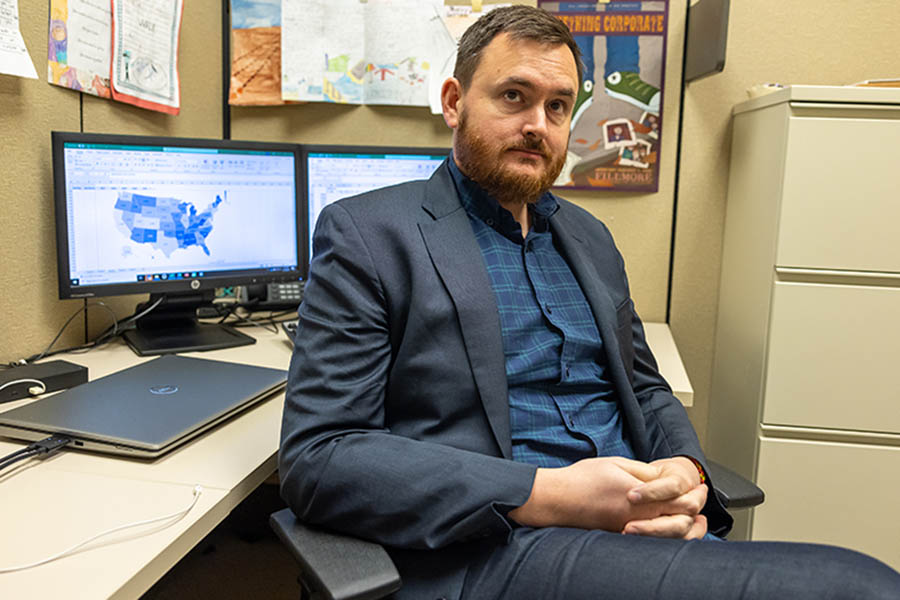
Josh Lehner
Economist,
Oregon Office of Economic Analysis
The 2022 population estimates that showed Oregon lost population for only the fourth time since World War II. The first three times were in the 1980s when Oregon suffered a recession larger than the Global Financial Crisis as the mills closed. Learning the details of the population estimates revealed that it was not fewer Americans moving into Oregon but a big increase in the number of Oregonians packing up and leaving the state that drove the overall declines. Amongst the sea of outflows, the one and maybe only silver lining for the economy was 18- to 24-year-olds continued to move into the state more than move out of the state. Pretty much every other demo-
graphic or income group saw net outflows.
Melissa Unger
Executive director, SEIU Local 503
The walkout in the Oregon Legislature was one of the low points in Oregon politics this year. Oregonians, including SEIU members, elect people to get work done. Oregon has real problems — homelessness, the increasing costs of housing, not enough behavioral health services, making sure kids learn and recover from the pandemic, a care system that does not work, access to health care — and we need the people we elected ready to show up and get to work on solutions. Instead, we saw people walk out over issues Oregonians support like abortion access. We need our elected officials to show up and do the work Oregonians need them to, even when they disagree.
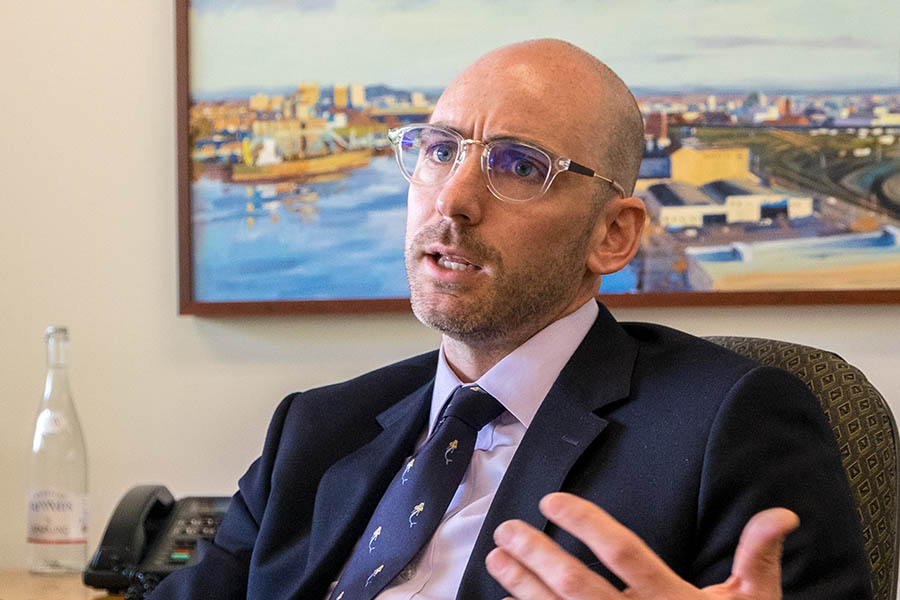
Andrew Hoan
President & CEO, Portland Metro Chamber
As many positives as we can point to, the fact of the matter is our downtown is still struggling. The loss of life and number of overdoses due to fentanyl have skyrocketed over the past several years and continue to shock, sadden and appall our teams. The contractors that work on behalf of Downtown Portland Clean & Safe administer Narcan regularly. Three years ago, they did not at all. We have become so accustomed to this level of public tragedy that we risk apathy. This is not normal and this is worse in Portland and the West Coast in general than other places.
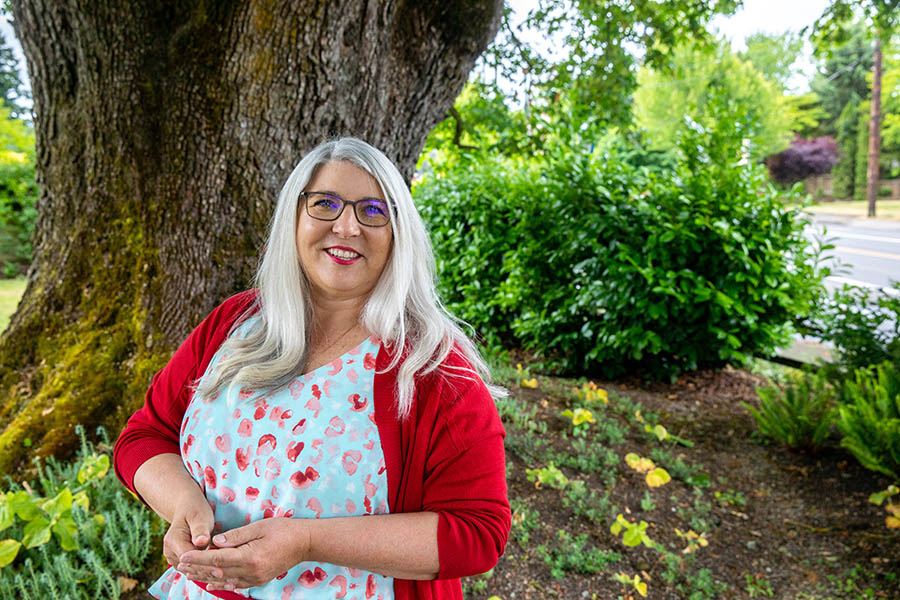
Heidi Khokhar
Executive director,
Rural Development Initiatives
As much as I see progress, I too often still hear destructive narratives about rural people and cultures, and I see well-meaning solutions being driven by urban centers of power. Rural areas represent such important structural and cultural differences across our state and we are still not doing enough to value, invite and support the inclusion of rural interests.
Tim Williams
Executive director, Oregon Film Office
The impact that the strikes (writers and actors) have had on our local industry.
What was the most surprising development in your field this year?

Angela Wilhelms
President & CEO, Oregon Business & Industry
OBI released an Ernst & Young report showing that Oregon’s effective business tax rate had gone up a whopping 45% between 2019 and 2021. On top of that, Portland has the second highest personal income tax rate in the country … less than 0.2% behind New York City (where you have to make $25 million per year to pay that rate compared to $125,000 in Portland). We knew the rates had gone up, but it was shocking to see the final calculations. We’ll commission an update in 2024 to capture data through 2023.
Sen. Ron Wyden
D-OR
I am endlessly surprised when some people run for office who denigrate public service and who actually have no interest in it. Sadly, America has experienced the fallout from that dynamic with far-right House Republicans in effect “catching the car” — achieving their supposed goal of a majority in the House yet completely lacking the ability or interest to help in governing our country.
Josh Lehner
Economist, Oregon Office
of Economic Analysis
That this initial descent from the inflationary economic boom to the soft landing has gone as well as expected. As businesses have staffed back up, job openings are declining. Overall inflationary and wage pressures are slowing down. The economy is not out of the woods yet and recession risks remain. However, so far, so good. Typically, inflationary economic booms do not end well. So this year’s economic experience is a welcomed outlier.
What was the least surprising?
Gov. Tina Kotek
Least surprising is that Oregonians care about each other and want the same things, such as making sure everyone has a roof over their head that they can afford. I’m energized by the “can do” attitudes of so many people across our state.
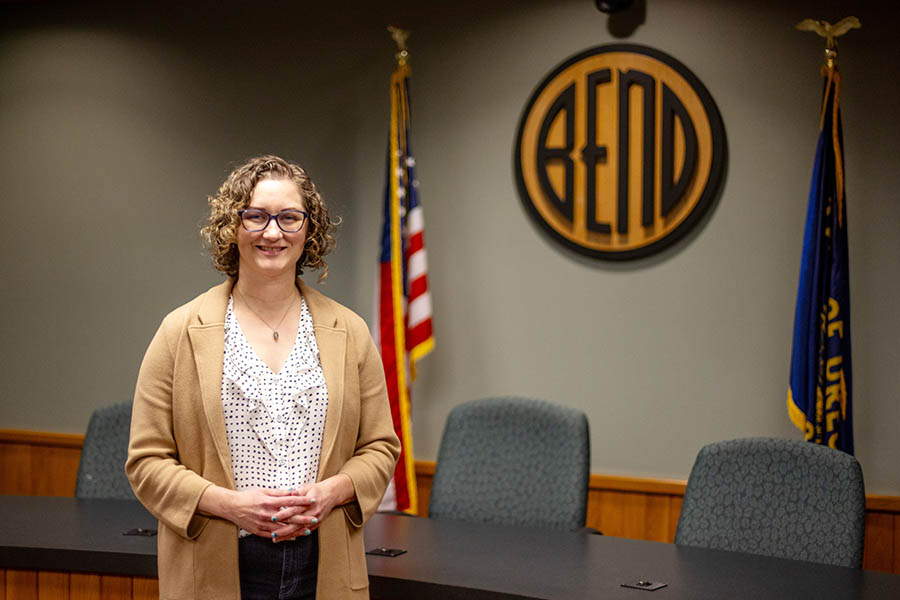
Melanie Kebler
Mayor of Bend
Housing remains the No. 1 concern for people in Bend. This is not surprising given that housing is a basic human need, and for so many decades here in Oregon, we have not built enough homes to keep up with growth and demand. I’ll continue to work to reverse that trend so housing is more attainable and affordable to everyone living in Bend. Luckily, we have a governor and state Legislature that continue to take bold action on housing as well.
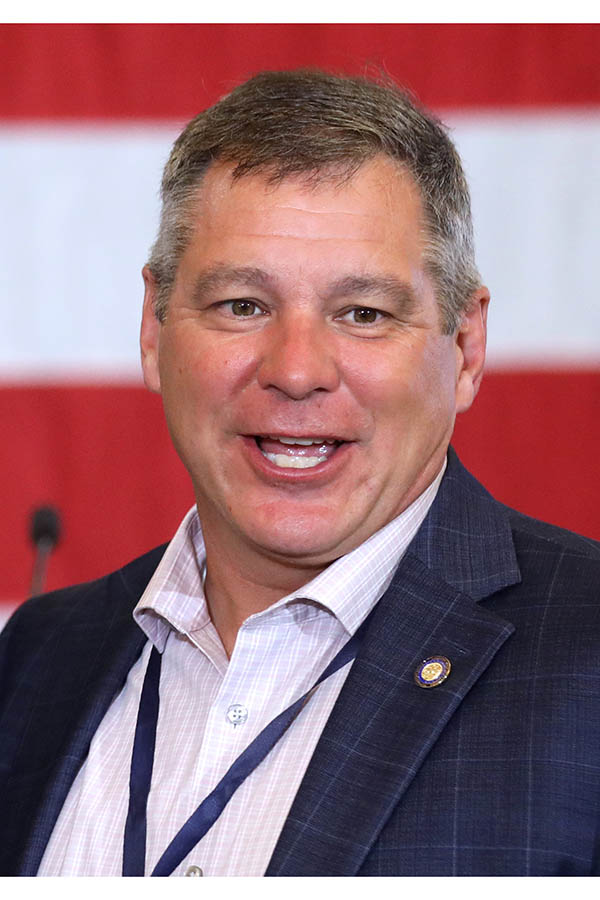
Rep. Jeff Helfrich
R-Hood River, House Minority Leader
The failure of Measure 110 is easily the least surprising to me. We see the tragic consequences of this horrendous policy every day. It has ruined our state and set a generation of people down the pathway of addiction and despair. House Republicans have offered solutions to the addiction, crime and homeless crises that plague our state — and fixing them will be our top priority.
Curtis Robinhold
Executive director, Port of Portland
I spent two volunteer shifts over the Thanksgiving holiday doing customer service in the PDX ticket lobby. My job was to answer questions and help people get where they needed to be. It’s a nice way for me to see our business up close — and see how hard it is. Every year that I do this, I am reminded of how great the PDX people are. They’re so helpful and caring, and seeing them get through even the hardest challenges is not surprising in any way.
What are you looking forward to in 2024?
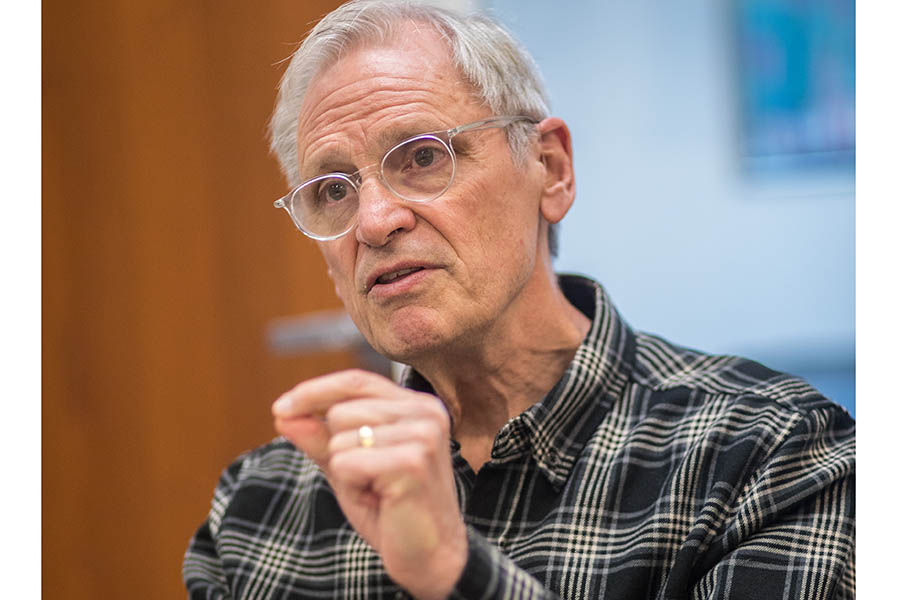
Rep. Earl Blumenauer
D-Oregon’s 3rd District
What I’ve been doing this year that I’m most excited about is working with the administration and people around the country to figure out how to use the pieces I authored, which are the most extensive green-energy provisions in history anywhere — not just in the United States. It’s really exciting, finally having the resources to do what we’ve been talking about, having this gusher of federal money; what we’re doing in terms of Amtrak transit, in terms of the revitalization of 82nd Avenue, the safety provisions. Four hundred seventy-three communities are going to have planning grants to deal with by Vision Zero. We have a billion dollars to implement.
Melissa Unger
Executive director, SEIU Local 503
In 2024 we have opportunities to think ahead about how we solve the challenges facing our state. We will be electing new leaders in Portland (including a new mayor), and I am hopeful that energy will bring action to the issues facing our city, our region and our state. We need fresh ideas, we need leadership and a passion for making Oregon a great place to live. For people that have lived in Oregon for a long time or people that have moved here, we know our great state has a lot to offer, and in 2024 we have an opportunity for our leaders to dig in, lead and invest in our future.

Jason Brandt
President & CEO, Oregon Restaurant & Lodging Association
I’m looking forward to seeing real solutions emerge to bring Oregon’s largest city back to life. Without question our restaurant and hotel members in Portland have endured the most and continue to suffer from a prolonged hangover induced by a multitude of issues. The entire state needs the Governor’s Task Force in support of Portland to be a resounding success with real solutions implemented in the 2024 short session of the Oregon Legislature. Our friends at the Portland Metro Chamber and Travel Portland have strong organizations ready to promote the good. We need Portlanders and Oregonians to embrace the reemergence of the metro area’s cultural, artistic and culinary strengths. The year 2024 can be our year not just for Portland but for Oregon as a whole.
Curtis Robinhold
Executive director, Port of Portland
The opening of PDX’s new main terminal in May 2024. It’s designed to give travelers a sense of place and to make PDX even more of a reflection of our region and its people, with all the wood sourced from within 300 miles of the airport and an all-local lineup of new shops and restaurants. Together they add up to a story that I hope our Pacific Northwest community will be proud of. I can’t wait for everyone to see it.
Josh Lehner
Economist, Oregon Office of Economic Analysis
There are two main sources of economic growth: labor and capital. Oregon’s overall economic gains this cycle have been quite good. However, we are currently relying less on labor given the population changes but have made up for that with the third-strongest productivity gains across all states. I am looking forward to seeing if Oregon will maintain that economic growth advantage in terms of business investment that ultimately results in stronger income growth for Oregonians.
Andrew Hoan
President & CEO, Portland Metro Chamber
The adoption of the city manager form of government with clear lines of authority that reside in a fully empowered executive branch will be decided in November with the election of a new mayor. Regardless of who is elected, the transition to this more common, “off the shelf” approach will result in improvements to basic services as we gain efficiencies in operations within city government. The business community has been demanding these improvements for a long time, and now they are scheduled to arrive in good order.
Gov. Tina Kotek
Continued progress on the top priorities that brought me into office: housing and homelessness, behavioral health, and early literacy. My goal is to stay focused and get things done for Oregonians.
What are you worried about?
Heidi Khokhar
Executive director, Rural Development Initiatives
That the current political climate is creating such fierce divides among people. That this pressure to pull us apart will undo all the great work that so many are doing to try to bring us together to solve really complex issues. We are fighting amongst ourselves vs. fighting together to solve our common problems.

Sen. Ron Wyden
Certainly there’s lots to worry about with uncertainty around the globe — China, Ukraine, the Middle East, Sudan and far too many other hot spots. That all adds up to the importance in an election year of choosing a president with the temperament and experience to let all Americans know there’s a rational hand at the wheel.
Josh Lehner
Economist, Oregon Office of Economic Analysis
That Oregonians will continue to choose to not build enough housing in our communities. Bad housing affordability not only results in higher homelessness but it impacts all of our household budgets and is a key factor in migration patterns. There are a growing set of public policies designed to increase housing production, but ultimately it will come to our willingness to be neighborly.
Any words of advice or caution for others in your field?
Jason Brandt
President & CEO, Oregon Restaurant & Lodging Industry
Cost controls are everything. A dollar saved in expense is a dollar to your bottom line. Make sure to leverage every possible scenario that can result in cost savings to sustain your small business and fulfill your plans for growth and success. The Oregon Employment Department expects our industry to continue growing faster than any other industry in the coming years. If those projections hold true, the demand should be there to find lasting success with thoughtful cost controls that don’t impede customer and employee satisfaction.

Melissa Unger
President & CEO, SEIU Local 503
The labor movement needs to continue to work to make gains for our current members, but we also need to continue to challenge the laws that keep workers from forming unions. Workers who are trying to form unions are meeting million-dollar campaigns in opposition; employers are still firing people for wanting to have a voice on the job through their union; and as a movement, we must continue to focus on how we bring workers together in union. We should do that creatively, like they have in California with fast-food workers; we should do that by pressuring companies like Starbucks to recognize the union and bargain at one table. We need to continue to fight for higher standards and make sure that Unions for All is a reality — every worker should have the right to form a union free from intimidation and fear for their job. As a movement we need to continue to do that.
Click here to subscribe to Oregon Business.





